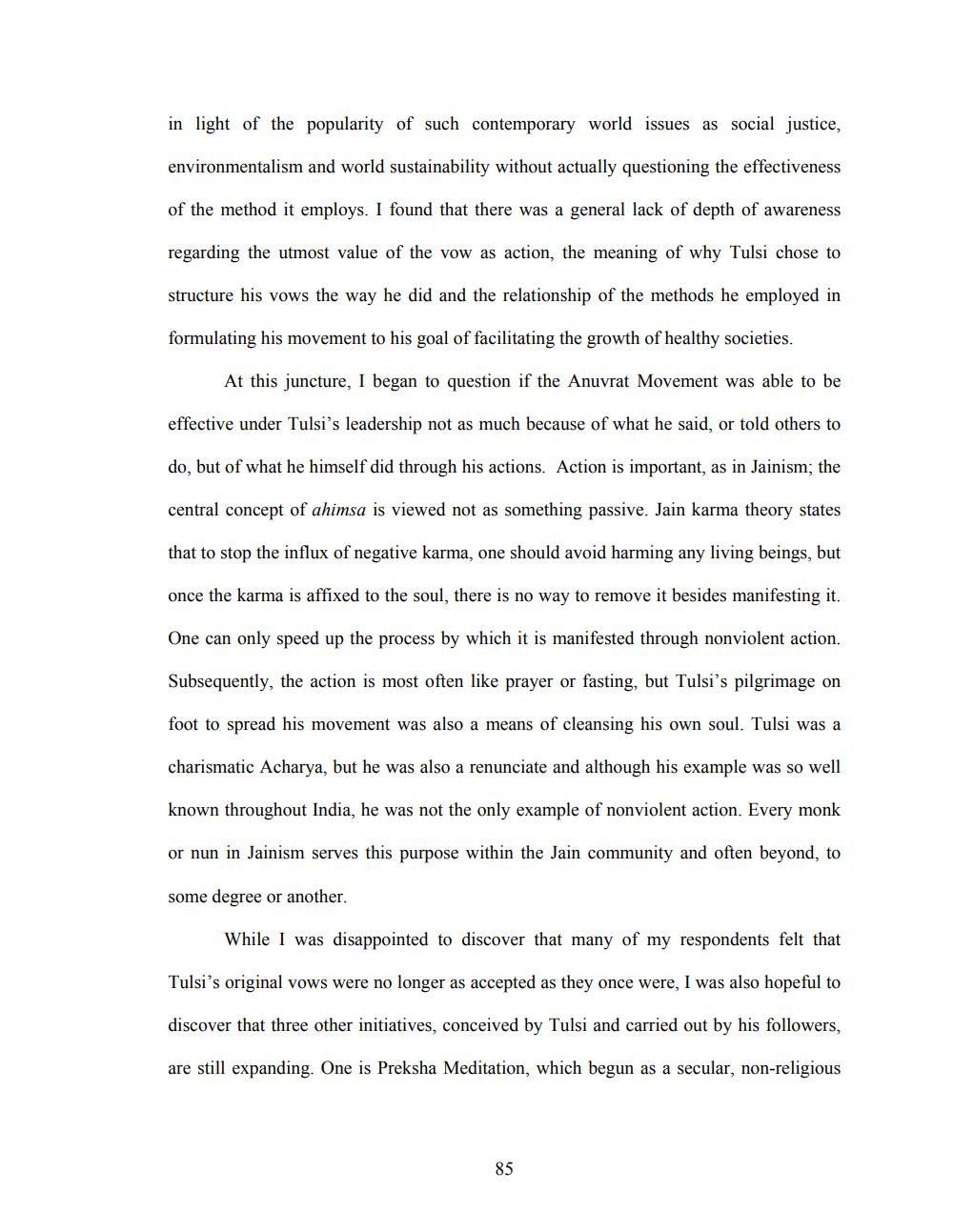________________
in light of the popularity of such contemporary world issues as social justice,
environmentalism and world sustainability without actually questioning the effectiveness
of the method it employs. I found that there was a general lack of depth of awareness
regarding the utmost value of the vow as action, the meaning of why Tulsi chose to
structure his vows the way he did and the relationship of the methods he employed in
formulating his movement to his goal of facilitating the growth of healthy societies.
At this juncture, I began to question if the Anuvrat Movement was able to be
effective under Tulsi's leadership not as much because of what he said, or told others to
do, but of what he himself did through his actions. Action is important, as in Jainism; the
central concept of ahimsa is viewed not as something passive. Jain karma theory states
that to stop the influx of negative karma, one should avoid harming any living beings, but
once the karma is affixed to the soul, there is no way to remove it besides manifesting it.
One can only speed up the process by which it is manifested through nonviolent action.
Subsequently, the action is most often like prayer or fasting, but Tulsi's pilgrimage on
foot to spread his movement was also a means of cleansing his own soul. Tulsi was a
charismatic Acharya, but he was also a renunciate and although his example was so well
known throughout India, he was not the only example of nonviolent action. Every monk
or nun in Jainism serves this purpose within the Jain community and often beyond, to
some degree or another.
While I was disappointed to discover that many of my respondents felt that
Tulsi's original vows were no longer as accepted as they once were, I was also hopeful to
discover that three other initiatives, conceived by Tulsi and carried out by his followers,
are still expanding. One is Preksha Meditation, which begun as a secular, non-religious




